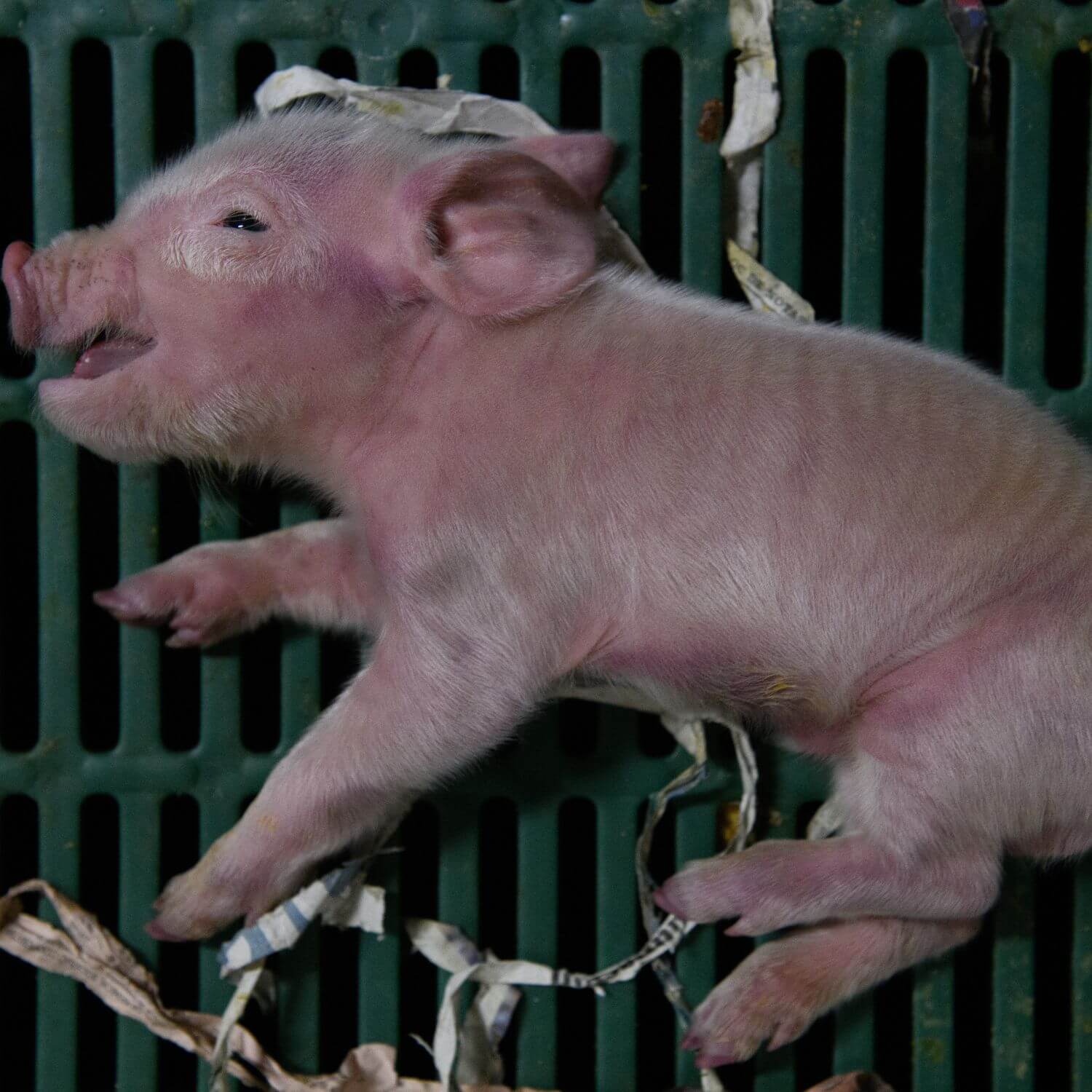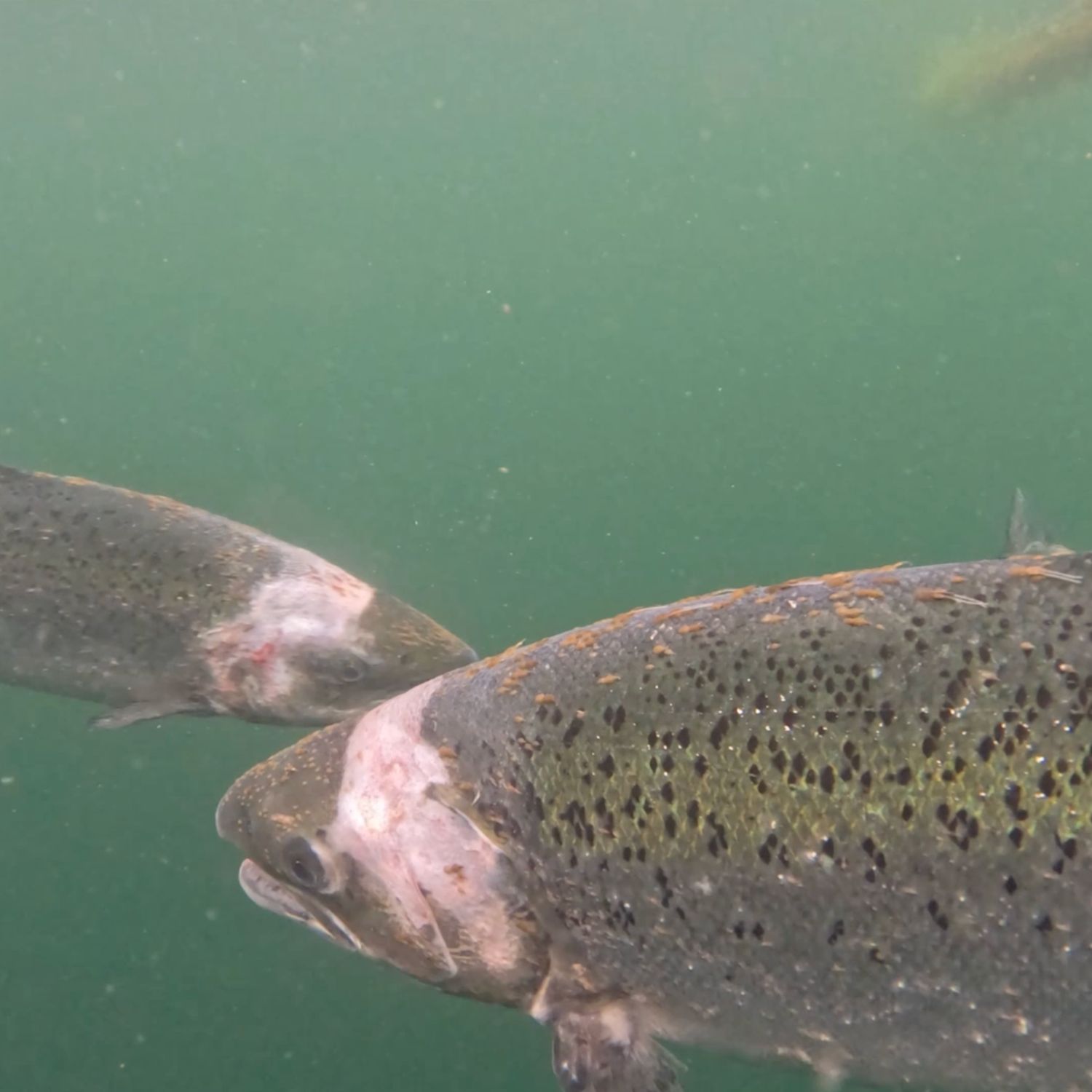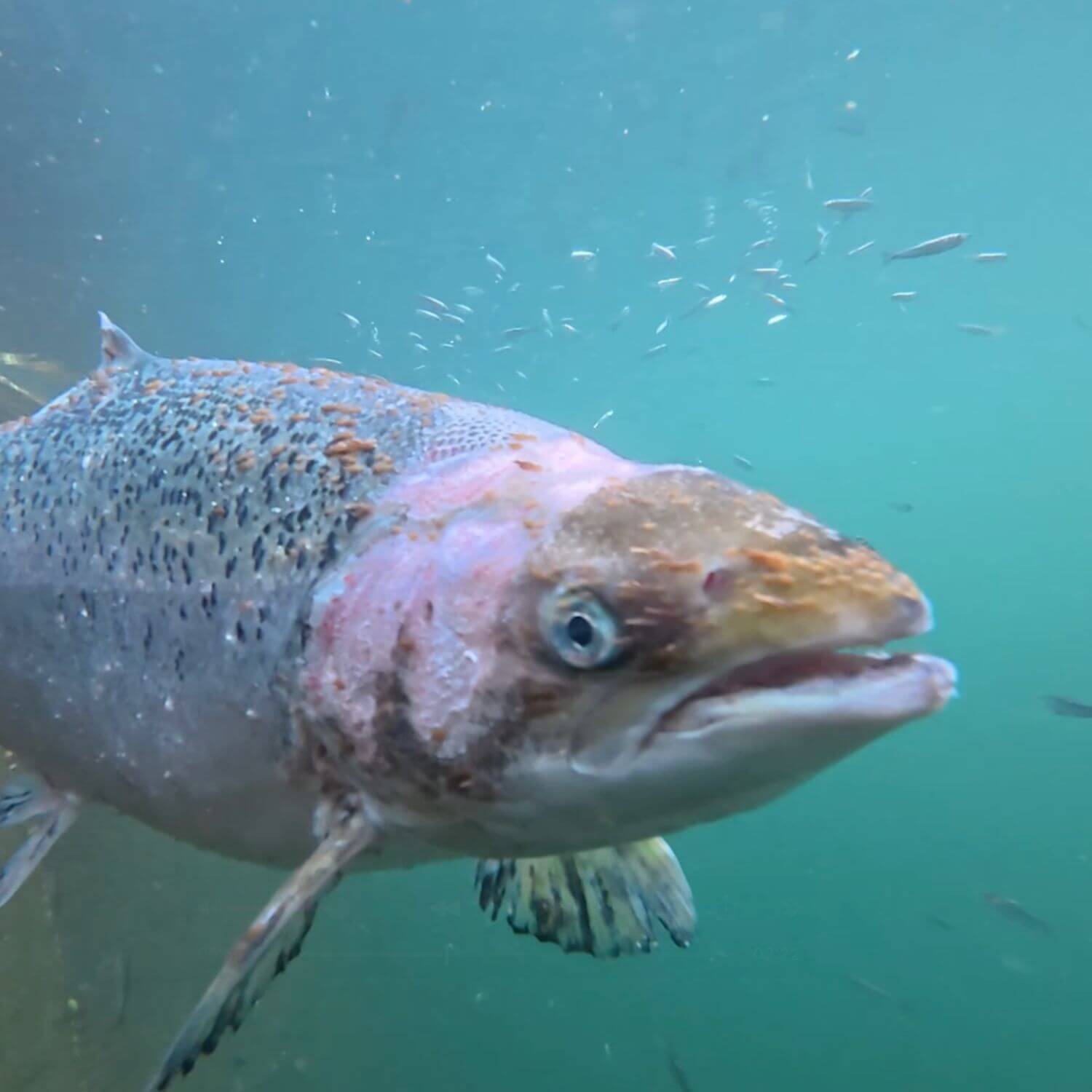MSPs demand a suspension to expansion of Scottish salmon farming as on-farm deaths hit record levels
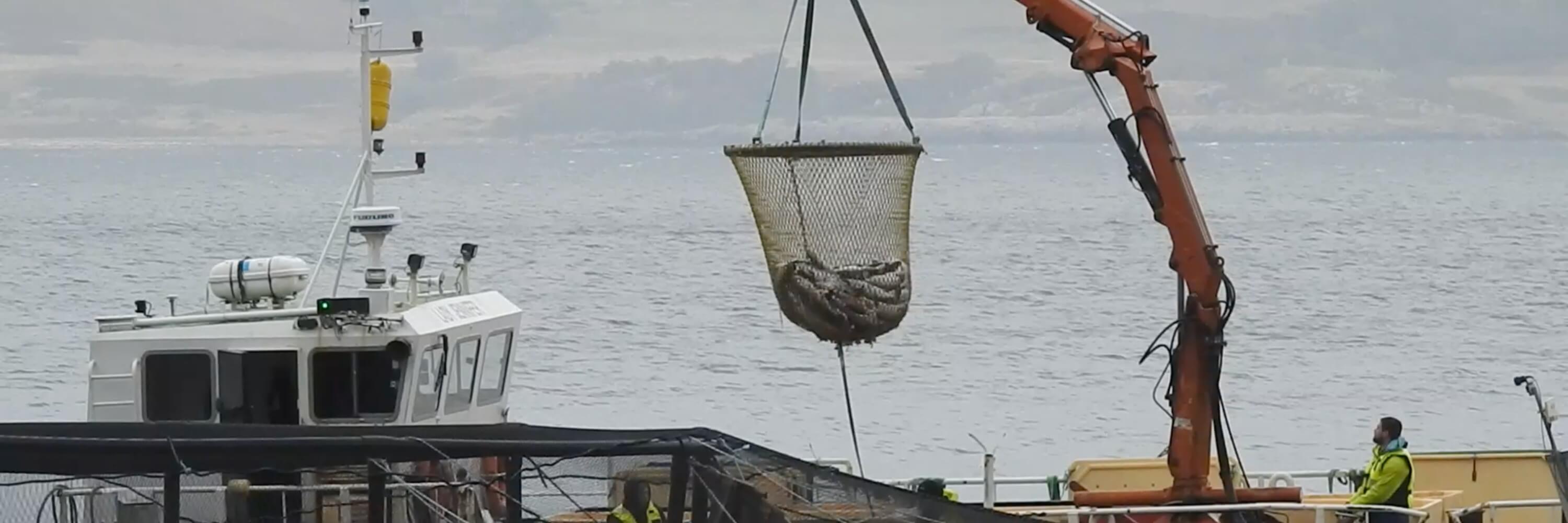
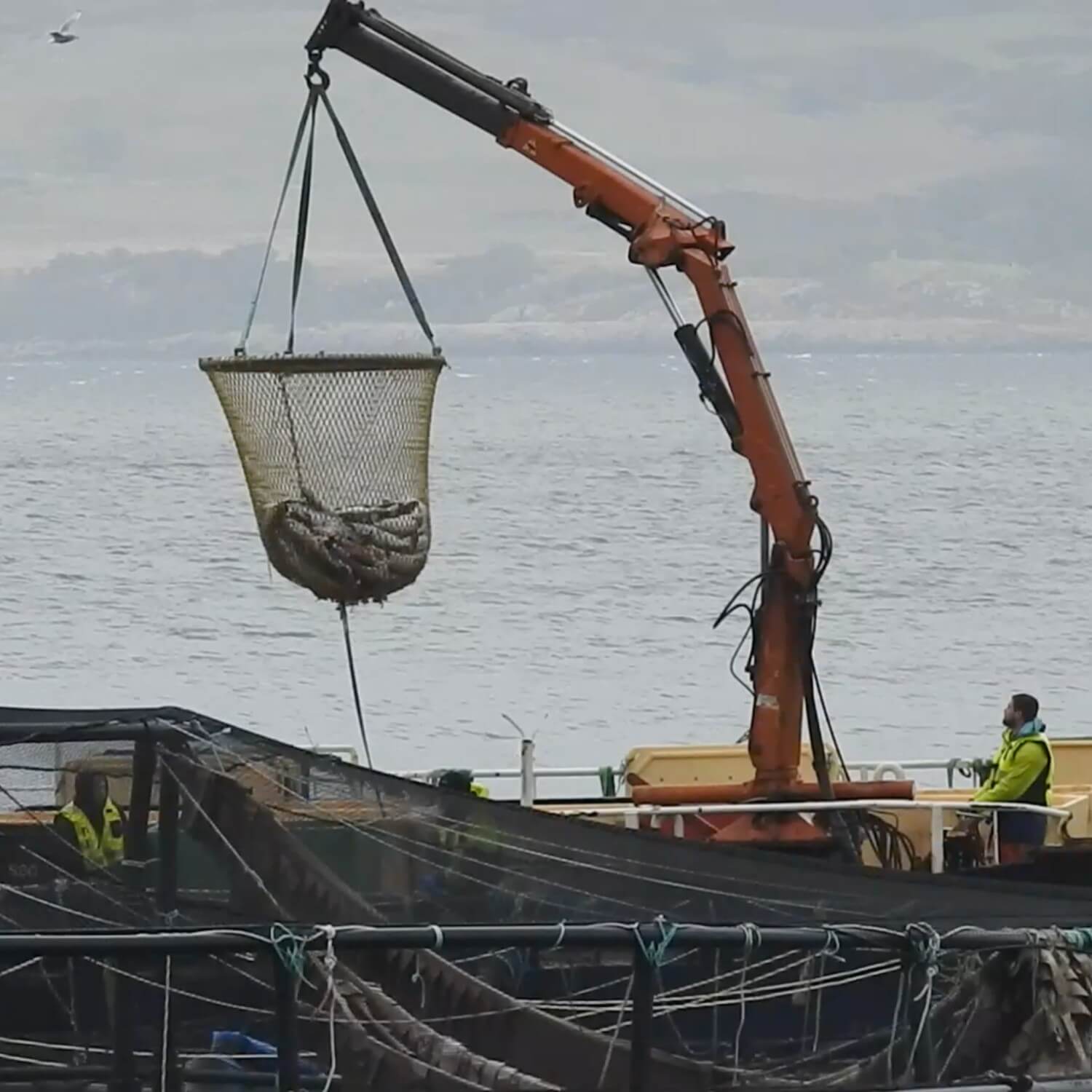
In February, Animal Equality and $camon $cotland revealed that salmon deaths on farms have soared over recent years, with over 16.5 million salmon recorded to have died in sea pens in Scotland last year. In response to these disturbing statistics, Scottish politicians are now demanding urgent action.
According to records published by the Fish Health Inspectorate, the number of fish who died in 2022 was nearly double that of 2021 and triple that of 2020. On-farm deaths have been rising sharply for several years.
An unsustainable industry
In a letter covered by The Scotsman and the Financial Times – coordinated by Animal Equality and Scottish NGO, OneKind – cross-party MPs and MSPs wrote to the Cabinet Secretary for Rural Affairs and Islands, Mairi Gougeon MSP.
Signatories are seeking a pause on all new salmon farming operations, in the form of an imposed moratorium on the expansion of the industry, and are urging that the mortality matter be investigated formally by regulatory bodies. If granted, the industry would be capped at its current capacity and requests for further expansion of new or existing aquaculture sites would not be permitted until the urgent issues are addressed.
The sharp rise in on-farm mortalities has caused us to question the long-term sustainability of this industry.
Cross-party MPs and MSPs
Cross-party support
The letter secured support from Scottish Green and Labour MSPs, as well as Conservative and Liberal Democrat MPs. The ask is endorsed by Ariane Burgess, Maggie Chapman, Foysol Choudhury, Monica Lennon, Pauline McNeill, Mark Ruskell, Colin Smyth and Mercedes Villalba, and supported by English MP Henry Smith of the Conservative Party and MP Wera Hobhouse of the Liberal Democrat Party.
Across the UK, approximately 52 million farmed fish are killed for human consumption each year, with millions more dying before they reach the slaughterhouse. The vast majority of these industrialised fish farms are based in Scotland.
Unprepared for the challenges posed by climate change
Citing climate change as a key factor to the sharp incline in salmon deaths, the letter says: “Scotland is already feeling the effects of climate change, which threatens the country’s citizens, as well as its stunning habitats and wildlife… we fear that this latest data suggests that the salmon farming industry is simply not adequately prepared to handle these changing conditions.” Fish farming spokespeople have conceded for some time that environmental factors are a key driver in fish mortalities, pointing to warming waters, algal blooms, rough weather conditions, and most recently a rise in jellyfish for the increased on-farm deaths.
Cruel confinement and unnatural farming practices
The MSPs also express unease about the “unnatural” and “tight” spaces that Atlantic salmon are kept in when farmed, which they claim provides “ample opportunity for disease transmission and lice breakouts to become ever more frequent, and for these territorial animals to develop aggressive tendencies toward one another.”
The sky high mortality figures across the industry are just the latest sign that Scottish salmon farms are struggling to control their impact on animal welfare and the environment. Farmed salmon across Scotland are suffering from sea lice infestations and harsh treatment, disease outbreaks, premature death and – for those that survive to maturity – prolonged pain in slaughterhouses.
Ariane Burgess, Scottish Green Party MSP
Experts sound the alarm
Commenting, world-leading aquatic animal expert, Dr Lynne Sneddon, says that most studies looking into “stocking densities” of pens involve fish confined in artificial environments in laboratories, not sea cages.
Despite scientists and academics continually raising serious welfare and environmental concerns, mortality rates have risen in the industry over recent decades. We know that these animals are sentient, and that millions of fish are dying in aquaculture, but because their suffering is hidden under water, the public are unaware of these welfare issues.
Dr Lynne Sneddon of the Department of Biological and Environmental Sciences at the University of Gothenburg
A failing industry
Salmon producers have come under fire for a number of issues of late, including increased use of antibiotics, fears of listeria contamination in fish products sold in Lidl, and allegations that the industry is using “loopholes” to “avoid reporting high lice levels”. Despite this, the Scottish salmon industry saw the highest ever number of farmed salmon slaughtered in 2021 and is set to grow exponentially over the coming years.
For the best part of a decade Scottish salmon producers have knowingly allowed millions of fish to die on farms under its watch, and to this day breeds millions more to suffer in lice-infested cages. These are the signs of a failing industry. But the politicians and people of the UK are no fools, and we will not be bystanders as this destructive industry wreaks havoc across Scotland’s waters.
Abigail Penny, Executive Director of Animal Equality UK
Act for fish
Just like humans and other animals, fish feel pain and they feel joy – they want to live. And yet this cruel industry causes them immense suffering and a lifetime of misery.
Don’t let fish be forgotten. End this cruelty today: try plant-based!
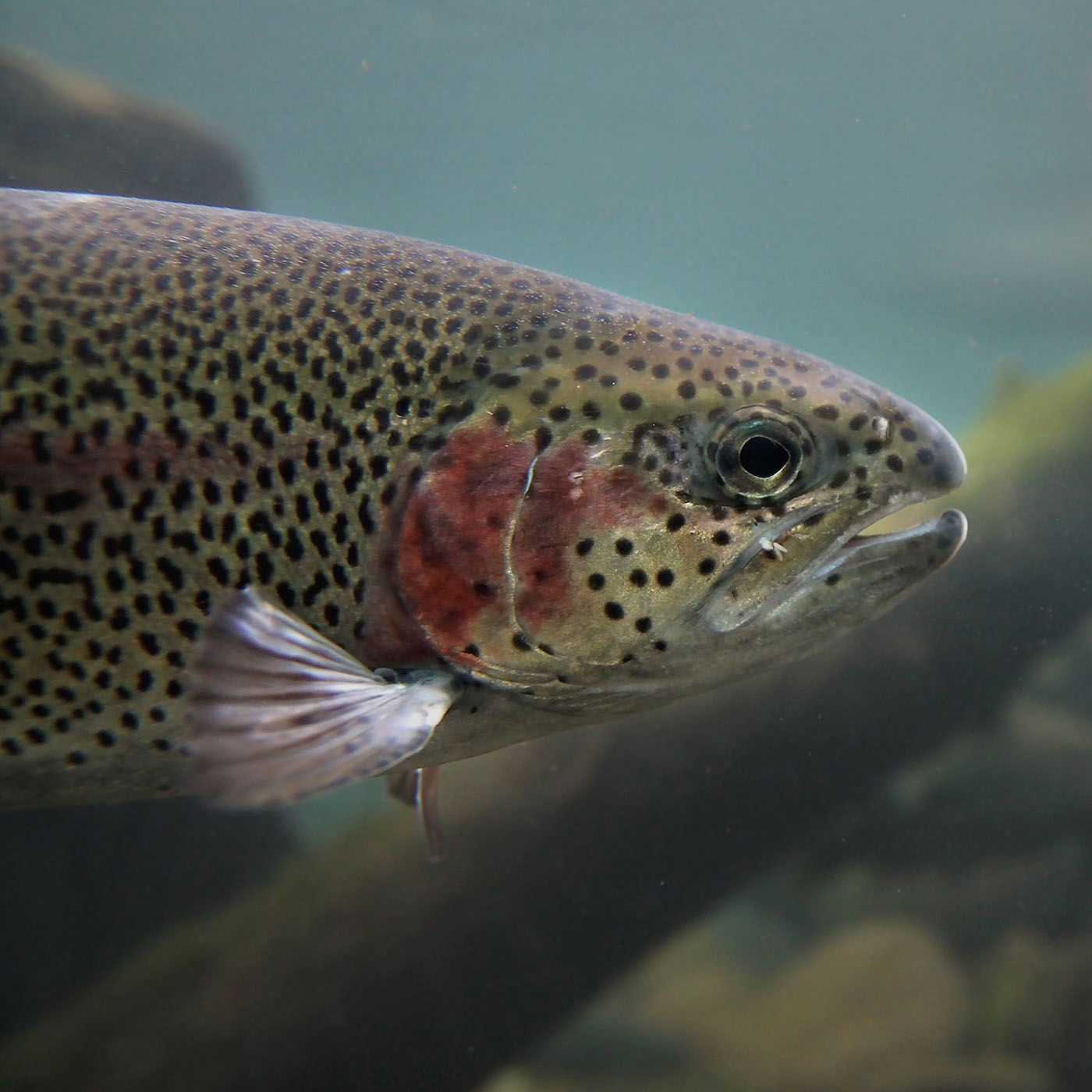
Protect Fish
Scientists confirm that fish feel pain and suffer. Protect these sensitive beings by choosing plant-based alternatives to animal food products.

